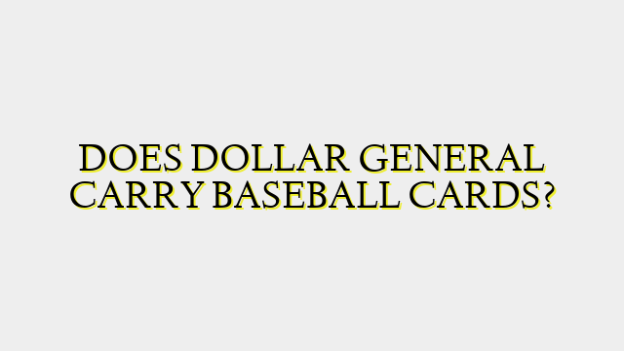Sam’s Club does occasionally carry baseball cards for sale in some store locations, but their baseball card selection and availability can vary significantly depending on the specific store. As a membership-only wholesale retailer owned and operated by Walmart, Sam’s Club focuses their product assortment more on bulk sizes of grocery, household, and other everyday items aimed at families and small businesses. Trading cards in general make up a relatively small part of their business compared to dedicated hobby shops, collectibles stores, or the trading card sections located within larger retailers like Walmart.
While individual Sam’s Clubs may stock a limited amount of baseball card products from time to time, baseball cards do not have a consistent presence across most stores in the way that staple items like paper towels, water bottles, or cereal do. Their decision to carry cards at all is usually dependent on local and regional interest in card collecting within the surrounding community of each club. Stores in areas with higher populations of baseball fans and collectors are more likely to devote shelf space to cards than locations in regions with lesser baseball participation and enthusiasm.
If baseball cards are stocked, the selection tends to be narrow and focused primarily on the most recent or upcoming major league season’s card releases from the major trading card manufacturers like Topps, Panini, Leaf, and others. Full sets may be packaged together, but incomplete or opened sets breaking boxes are less common finds. Beyond new season cards, some clubs may keep a small rotating supply of vintage or high-end chase cards in protective sleeves available individually for enthusiasts. Comprehensive vintage sets, rare parallels, autographed memorabilia cards, and unopened boxes of past years can be very difficult to locate consistently.
Product choice and availability is also subject to periodic change based on sales performance. If certain card lines prove less popular with Sam’s Club shoppers, they may be removed from inventory to free up space for stronger selling items. Conversely, clubs attuned to local collectors may experiment with expanding selections over time in response to membership demand. Overall supply tends to be limited compared to the much larger and more specialty-focused inventories carried by hobby shops and online retailers.
Sam’s Club pricing on cards generally aims to provide a fairly competitive bargain versus other major retailers. Their prices may not always align with the cheapest costs found through hobby stores or auction sites more focused singularly on card collecting. They often cannot match deep discounts provided by sponsors of major card conventions and memorabilia shows either. Members also need to factor in the annual cost of a Sam’s Club membership on top of card purchases from their stores.
For collectors trying to fill out team or player sets efficiently on a budget, Sam’s Club can offer a convenient one-stop bulk shopping location for families to also stock up on essentials alongside opportunistically browsing for cards. Dedicated or advanced collectors seeking the rarest and most valuable vintage cards, autograph relic parallel versions, team lots, and unopened cases are unlikely to fully satisfy their collecting goals and specialized needs through Sam’s Club alone. While they carry some cards, Sam’s Club maintains primarily a broad general merchandise focus across all departments catering to average household and small business customers rather than niche collecting markets. Convenient general selection comes at the cost of specialized depth for any one hobby compared to dedicated hobby retailers.
While many Sam’s Club locations may stock a small assortment of the latest baseball card releases and some additional stock on hand, their baseball card offerings tend to be inconsistent between clubs, limited in scope, and not the primary emphasis of their business model. Serious and discerning card collectors are best advised to supplement any occasional cards found at Sam’s Club with dedicated hobby shops, memorabilia stores, and card show circuit sources able to meet more specific collecting interests and supply harder to find vintage, rare, and out of print card products. But casual collectors, families, and bulk shoppers will likely occasionally encounter passably priced new season card options if seeking an incomplete assortment during general merchandise shopping trips to their local Sam’s Club store.

